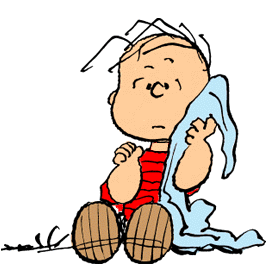You truly need to quiet your mind for this one, to piece together the wonders of Japhy Ryder (poet Gary Snyder) through the eyes of Raymond Smith (Jack Kerouac himself), to understand in a bit of a Buddhist nothingness not silence not noise not anything. At times, with all swirling in my brain these days--moving, staying in Phoenix, balancing finances, the hard-hit realization of being a full-fledged adult with credit and economy--I had times I felt shamefully noisy. But that's why it's good I hit a more romantic Kerouac with his "Dharma Bums" at this time, to remember the quiet and the joy and the OKness of many things. (Even if he was drunk and trying to get laid a lot of the time--).
Japhy Ryder is to "The Dharma Bums" what Dean Moriarty (Neal Cassady) is to "On the Road": the Chosen One Kerouac follows pseudonymed-up for another segment of his life--journey--adventure--learning. This time we go fewer places than "On the Road" before, but the visions of life are more wide-eyed. You can literally taste the coldness of the stream Kerouac sips from as they make their way up Matterhorn Mt., feel the exhilaration as Kerouac realizes you can't fall off of a mountain(!), and then, later, see the clouds swirling below you as the lookout on great Desolation Peak (a place not quite as romanticized in the more devastating "Desolation Angels"). Japhy takes Kerouac through all of this, showing him the purity in the quiet outdoors, steering clear of tourists and haggles, noise and human-inflicted pain. Even in the city they live in shacks and sit on haysacks meditating, doing nothing and everything. We even run into Allen Ginsberg who Kerouac portrays more crabby then ever due to his conflict with Kerouac's insane passion toward his BhuddiChristian beliefs (not hard to see why this was the Kerouac book he was the harshest towards, though honestly, I take him for a more objective intellectual then that). In turn for Japhy's guidance, Kerouac immortalizes him in his familiar rollicking prose, edited I'm sure with more tight punctuation, let loose enough to let the rhythm and spontaneity breathe through and sound authentically Kerouac. He is far warmer and more idolizing of him than the, at time caricature-like, Neal Cassady.
In the end, you see Kerouac as the mountain lookout, following in the shoes of this young man, Japhy, trying to understand his world, see how it fits him. In later books, we'd find out it didn't quite go as dreamily as he had wished or even chronicled in the last 30 or so pages of this book, but here, for the sake of this work of fiction, it was a blessing and a soothing peace gathering around this Raymond Smith, this man searching for something beyond the booze and women that plagued his life so, past the insane drama his so often inflicted upon himself and immediately returned to after his trip down the mountain. In many ways, perhaps, this was the silent climax in the hectic life of the fictional Sal Paradise, Raymond Smith, Jack Duluoz, as the one lurking in the shadows of the Duluoz Legend wanted us to see. Maybe. Or maybe that's my romantic interpretation of it all. Either way, I leave with a quote to fall with the popular interpretation of Kerouac as a brilliant chronicler of post-World War Americans searching for a place to be, with
"I recalled with a twinge of sadness how Japhy was always so dead serious about food, and I wished the whole world was dead serious about food instead of silly rockets and machines and explosives using everybody's food money to blow their heads off anyway."
PS: I've now read three of the 17 (as I count'um right now) "Graphic Classics" from penguin. This, We Have Always Lived in the Castle, Candide, and Fairy Tales. I love the feel and the covers and all of the contextual intros and notes!
